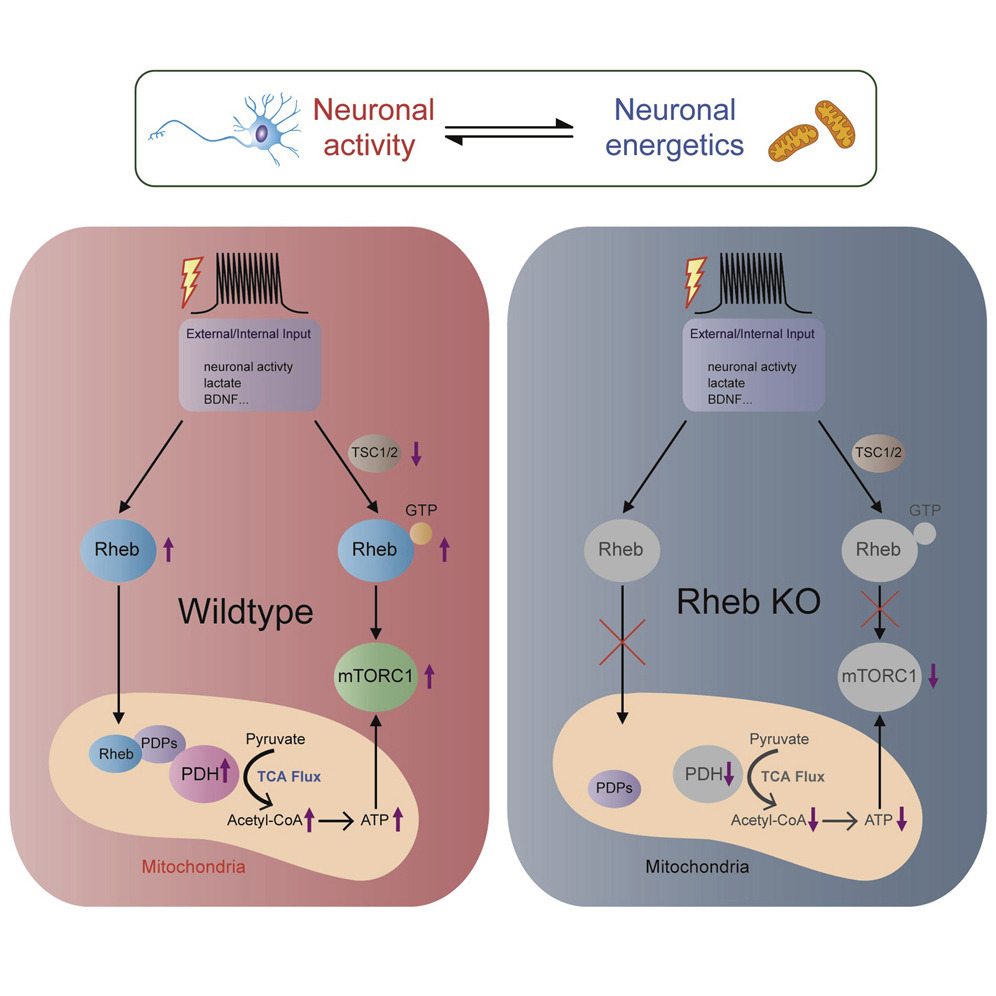
On March 15, Developmental Cell, a member of the international academic journal Cell, published an article by Postdoc Yang Wanchun and Postdoc Pang Dejiang, post doctors of the State Key Laboratory of Biotherapy(SKLB), Sichuan University. The article was titled “Rheb Mediates Neuronal-Activity-Induced Mitochondrial Energetics through mTORC1-independent PDH Activation”. It revealed that Rheb is a nodal point in the regulation of neuronal mitochondrial metabolism.
Rheb is a small GTPase that is highly expressed in neurons. In the previous work, the team found that Rheb was the key factor to activate mTORC1 pathway and played an important role in the development of brain myelination (Developmental Cell, 2011; Journal of Neuroscience, 2014). In this study, authors developed a variety of Rheb conditional gene knockout/transgenic mice, to demonstrate that Rheb regulates mitochondrial function independently of mTORC1. After entering into mitochondria matrix, Rheb regulated the activity of pyruvate dehydrogenase complex (PDH) and acetylCoA production, and thus promoted the mitochondrial energy metabolism. Deletion of Rheb impaired PDH activation and mitochondrial energy metabolism caused by neuronal activity. Mechanistically, Rheb interacted with PDH phosphatase PDP, promoting the stability of PDP-PDH complex and enhancing PDP phosphatase activity.
On the other hand, the team also found that Rheb regulated mitochondrial architecture through mTORC1 pathway (FEBS Letters, 2021). The series of work showed that Rheb is a key molecule to regulate mitochondrial structure and function. These findings revealed a new mechanism of mitochondrial energy metabolism regulation, providing a new path to treatment of various mitochondrial related diseases.
WCHSCU’s Postdoc Yang Wanchun and Postdoc Pang Dejiang are the co-first authors of this article, and the corresponding authors are Professor Xiao Bo from the South University of Science and Technology of China and Professor Paul Worley from Johns Hopkins University, the United States.